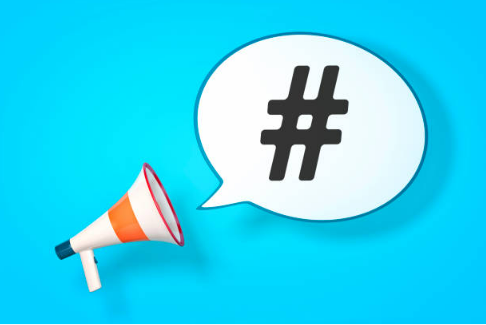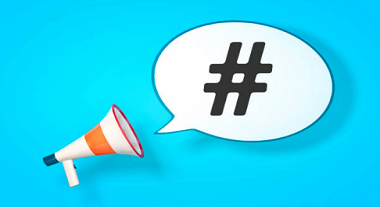Hashtags And Trademark
Today’s world is growing so fast and we humans are becoming completely dependent upon the technology If you’ve spent any length of time on any social media site in the previous few years, you’ll recognise three facts. For starters, social media is become an essential marketing platform for the majority of firms. Second, social media platforms are always developing online marketing tools to assist firms in reaching out to present and future clients. Third, hashtags have emerged as one of the most inventive marketing techniques on all social media platforms.

ORIGIN OF HASHTAGS
Hashtags do not require a formal introduction, let us confront the idea behind it. Chris Messina was the first to introduce hashtags on Twitter in 2007, and there has been no going back since. Hashtags are just a set of words joined together without spaces and preceded by the hash (#). They are metadata tags that let users make, recognize, explore, and participate to a certain discussion or subject on online communities and other internet applications.
NEED FOR HASHTAGS TRADEMARK
Even while registering one’s hashtags as trademarks does not prevent others from using that hashtag, a registered hashtag trademark is still quite valuable in today’s highly competitive industry. Obtaining trademark registration for the firm’s unique hashtags gives the company an advantage if another company uses the same hashtag to advertise a competitive product or service in the same sector.
The trend of registering hashtags as trademarks began in 2010, and the filing of such Trademark Applications has increased significantly ever since. A hashtag may be considered a trademark if it meets the following prerequisites:
- It should let users to identify the origin of a product or service from which the hashtag was generated.
- The owner of the hashtag should be able to graphically depict the same.
- The consumer should be able to tell the difference between things produced by the owner of one hashtag and those produced by others.
HASHTAGS IN INDIA AND USA
INDIA
To register as a trademark under the Indian Trademark Act, 1999, a hashtag must meet two basic criteria:
(a) it must be capable of being represented graphically, and
(b) it must be capable of identifying one person’s services and goods than those of another.
The Trade Marks Act of 1999 (hereafter the Act) defines “mark” as “a device, branding, heading, label, ticket, name, signature, phrase, letter, numerical, form of products, packaging, or combination of colours or any combination thereof.” Furthermore, according to section 2(1) (zb) of the act, the hashtag must be visually represented and the tag must distinguish one producer’s goods/service from those of another; only then can a hashtag qualify as a trademark. Hashtags are a mix of letters and numbers that may be expressed visually; the key problem is to meet the Act’s second criteria. Because trademarks are source identifiers, it is impossible for a hashtag to fulfil the second requirement.
USA
The United States Patent and Trademark Office (“USPTO”) has expressed interest in trademarking a hashtag. However, it chooses to handle the situation on an individual basis. Because the Office handles hashtags similarly to domain names, a hashtag must act as a source identification in order to be registered as a trademark. Simply, the hashtag should be representative of the source rather than a popular or generic word/phrase.
CONCLUSION
Although the notion of hashtags as trademarks is not widely accepted in the nation, the excitement associated with this trend of hashtag is taking on, and this concept will soon grow, and the courts will be loaded with cases relating to the same. In conclusion, hashtags have the potential to be registered as a trademark and may go a long way in promoting the brand provided the proper measures are done, such as using only unique and related hashtags with the products/services and investing in the proper type of digital marketing.
Author–Sarthak Mishra– a student of IIT Kharagpur, currently an Intern at IP & Legal Filing, in case of any queries please contact/write back to us at support@ipandlegalfilings.com.



